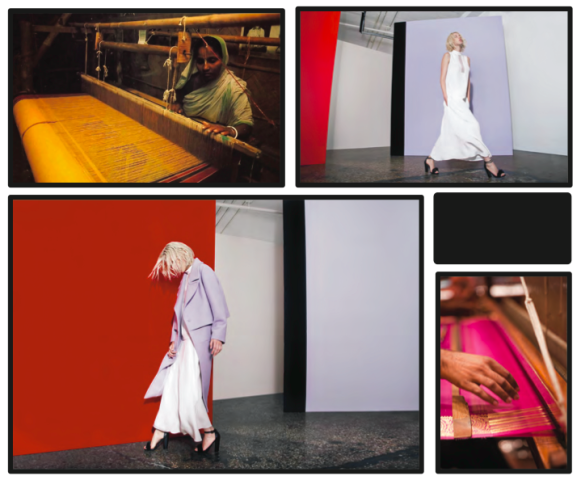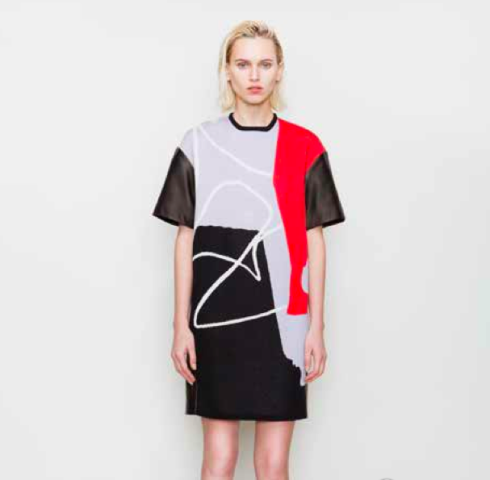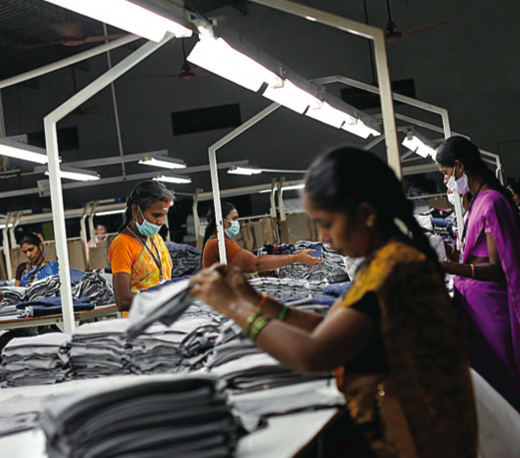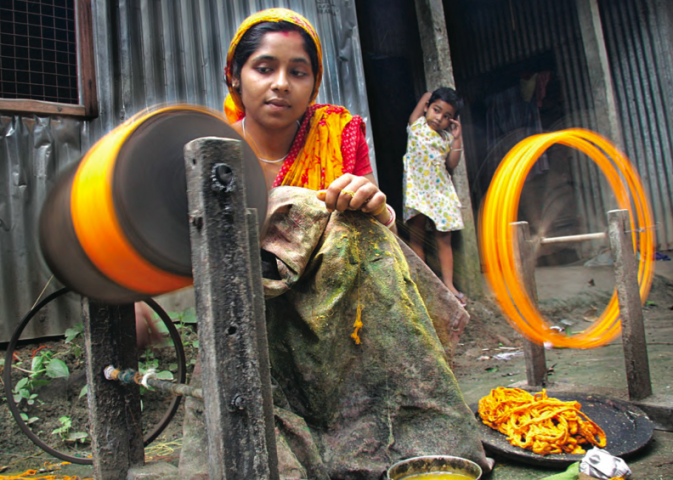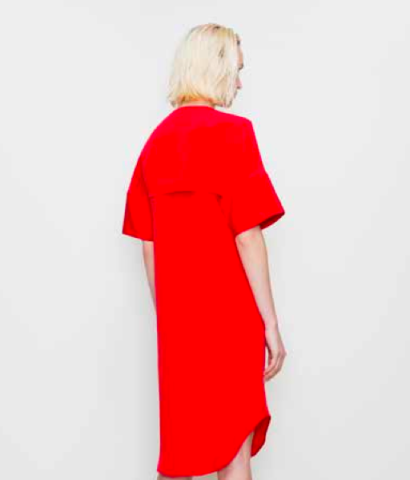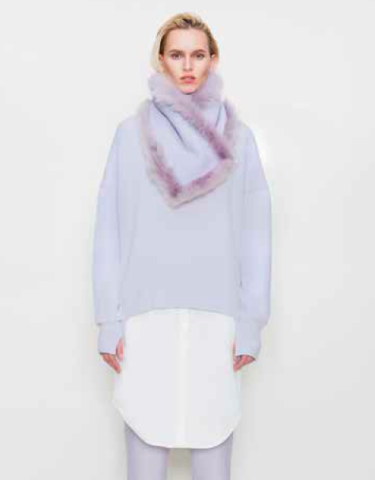WomenNow.in met with Shivam Puniya, founder of behno. behno is a new way to approach fashion and a new way to produce it, a fashion label that is socially conscious. How does that work, we wanted to know, and asked behno some questions about behno and its approach to ethical fashion “made in India”.
Q: Upfront in one line: what is it that is special about behno?
A: behno is equal parts socially conscious and equal parts fashion.
Q: What are the reasons you are launching a fashion brand?
A: So, I never thought I’d work in fashion, let alone found a fashion label. But, sometimes you can’t control the way that life turns out and the directions it takes.

Anyways, I’ll try to keep this short. My academic background is in global health,political economics and global poverty, and I actually wanted to go into consulting for developing economies. While I was in the field for my thesis research for my masters program at Duke University, I came across and learned about some Indian textiles and the amazing women behind their production. I visited their homes in rural Gujarat, and learned more and more about their lives and the global perception of “made in India”.
Simultaneously, the Rana Plaza factory in Bangladesh collapsed and that really hit the mark for me. How can an industry that is predominantly powered by women be revamped to become a change-maker in addressing women’s rights and health?
This, coupled with my belief that India has an amazing offering in luxury contrary to popular perceptions of “made in India”, led to my launching behno. behno’s goal is to refresh and redefine “made in India” through ethical garmenting, and showcase that tailored, well designed and directional womenswear can be manufactured in India.
Q: What is your background? Why do you think you can succeed in such a harsh business? And what is it that makes you different from other brands.
A: Well, I have a background that doesn’t nod to fashion at all. I studied political economics and global poverty at UC Berkeley in California, and then went on to study global health at Duke University. During my years in university, I worked in various industries ranging from ink manufacturing to hospitality to nonprofits. But no background in fashion. Since behno, my learning curve has been steep.
This, however, is what I think the beauty of our team is- we all have various backgrounds and come together to collectively form a strong interdisciplinary team that vibes so well together. Of course, while the fact that ethical garmenting is at the heart of our brand identity, what sets behno apart from other brands is also our team.
Myself, along with our chairperson and business development advisor, have no backgrounds in fashion. Instead, we come from a health focuses and business backgrounds. Our design team has worked with various reputable brands and is affiliated with some of the nation’s top design schools. Yet everyone on the core team sees eye to eye. behno’s business and back-end team really understands the importance of great design sensibilities and is learning exponentially about the entire design process, and behno’s design team really understands the importance of behno’s core social mission. We’re dedicated to working hard to learn the various facet’s of behno’s brand, and are so patient with each other. We’re a dream team.
Q: Having no real fashion background, what makes you think your fashion style will get accepted by your audience? How did you chose your fashion style – by what did you get inspired?
A: Going into behno, I was dissatisfied with the common perception of “made in India”, which comprised of three main comments: 1) “made in India” garments were poorly designed and too “crafty” with too much embroidery and over embellishment; 2) they were of low-quality; and 3) made in sweatshops.
I wanted to refresh this perception. When we were first identifying what behno’s design aesthetics would be, I envisioned tailored and clean pieces whose fabrication was of top-quality and design sensibilities were very fresh and bold.
Just recently, we showcased our collection at Tranoi NY, and the reactions that we received towards our collection was just what we hoped for- people did a double-take when they came to learn that our collection was manufactured in India. It’s refreshing to see India’s potential competing on the global stage in new way.
Q: Where would you place Indian fashion – also compared to other markets? Do you think Indian fashion has a place in the world – or just in India?
A: Obviously, I think that Indian fashion is an industry of its own; it caters to an entirely different market and its consumer base is very specific. And that in itself makes it a financially lucrative industry; there’s a huge consumer base both in India but also abroad that covets intricate saris, lenghas, etc. On this front, I think that traditional, bespoke (so to speak) Indian fashion’s primary market lies within the discretion of Indian- and affiliated- consumers. And then, of course, we have the surge of amazing Indian designers who are designing for a more “Western” client. Their interpretation and vision is always interesting- an eclectic India meets pants, blouses and dresses. Indian fashion on this front is emerging, and I think emerging designers that showcase this side of Indian fashion will slowly gain global recognition. There are already some huge key players out there!
On the flip side, at behno, all our designing occurs in NYC in line with our long-term goal to refresh and redefine what “made in India” means on the global competing field. For us, manufacturing amazing pieces in India is not an impossible feat, and we’re excited to really collaborate with our partner factory, MSA Ethos, to champion a space where luxury fashion meets ethical garmenting.
Q: Why do your parents support you?
My parents- all four of them- have always encouraged us to study and pursue what we’re most driven about. We recognize this is a privilege- when my fathers moved to the United States, it was about establishing financial security for their family. As time passed, and a base level of economic security was reached, we were encouraged to explore our passions and jump at them. My family’s support is a product of struggles, sacrifices and hardships that I have not seen or experienced. It is humbling and I am forever grateful.
Also, in case you’re wondering how I have four parents- I have two dads and two moms. My fathers are brothers and my mothers are sisters. So two brothers married two sisters. I have two younger siblings, and growing up, there was no distinction between our sets of parents- we were yelled at twice as much, but also loved twice as much. We all live together in California and do everything together. We’re a nutty bunch.
Q: : What is your timeline in an ideal world for behno? Where do you see yourself – and behno – in 10 years?
A: Of course, financial sustainability is at the heart of any profitable social enterprise. This, coupled with the fact that any new brand needs to set aside its unique identity, will mean that we will also be cognizant in strengthening and building upon our brand’s vision. That said, in the next couple years, these two realms will be our primary focuses.
In 10 years, I hope that behno is one of many brands that have lifted up and changed the perception of “made in India”. It would also be so dreamy to see behno as an global brand that maintains and pushes its design sensibilities to new levels all the while upholding “The behno Standard” with continued integrity.
Q: You mentioned you were sustainable? What are the issues of women in India? Why is this the case? Why do you think you can change things?
A: Part of “The behno Standard” is to ensure that our partner factory, MSA Ethos, employs as many sustainable practices as possible. For example, one of the measures that MSA Ethos will be taking to ensure environmental sustainability is by building its permanent facility out of locally sourced materials, primarily mud. It’ll be a new type of garment factory- natural, eco-conscious, and embedded within the local communities.
When we look at women’s rights and health issues in India, it’s complex and loaded. Right off the back, if we take a step back and look at the current climate of women’s rights in India, we quickly see that the country’s political system isn’t ready to talk about rape, rights and needs. With that in observance, I think the biggest issue is the fact that women- from all backgrounds including the garmenting industry- aren’t being heard. Particularly in the garmenting industry, a lot of needed compliances are in place, however, services aren’t provided that garment workers want. This is largely due to the fact that garment workers aren’t a part of the conversations. With “The behno Standard”, its very much a reactive standard that has been constructed based on what we have learned and studied from the garment industry and its power source- its workers. Change occurs when the root of issues are understood and addressed, which is something “The behno Standard” precisely aims to do.
Q: What are the things that need to happen in India?
A: I don’t know if I’m the right person to answer this question, but I think that the country is slowly on a progressive path towards recognizing and addressing the issues that its people are facing.
Read more about behno in Vogue India here and check out their website at www.behno.com.








